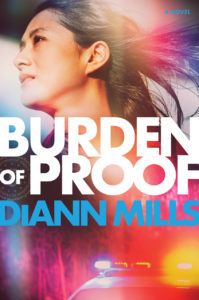Writers seek ways to polish their craft and deepen their understanding of what makes a marketable manuscript. Dedicated writers challenge themselves to make each project better than the previous one. The following 10 items will increase every writer’s awareness of the skills needed for a successful book.
- Develop three sentences describing the writing project. As difficult as this may sound, the clarity and conciseness not only helps the writer focus on the fiction or nonfiction project, but also provides an overall pitch to others.
- Incorporate the five senses. Today’s readers yearn for an adventure. If the project is fiction, the reader must experience the story. If the project is nonfiction, the reader needs to be entrenched in the material.
- Instill proper grammar. Nothing is more frustrating or throws a reader out of the experience more than poor grammar and punctuation. With textbooks and websites available to teach and correct our errors, there isn’t an excuse. My go-to site is grammarly.com I also value the Word Frequency Counter. Paste a document into the site, and the application shows the number of times every word is used. It’s free! My new fav site is ProWriting Aid, a writer’s personal writing coach.
- Network with other writers. Most creative types see life with a bit of quirkiness. We’re often labeled as eccentric, bizarre, or advised to take meds. The truth is we have a distinct perspective about the world that allows us to communicate through the written word. When creative people are able to share their thoughts with like minds, they’re encouraged and inspired to continue. Consider forming a writer’s group to sharpen the tools of the craft and to socialize.
- Nurture the writer’s voice. Each writer has a unique way of stringing words together. It’s the writer’s brand as sure as a hot iron sears the page. The best way to develop our voice is to keep writing.
- Provide opportunities to imagine. Some of my best writing happens when I close my eyes and type. Initiate prompts with heartfelt questions about the writing project. Take a walk. Explore the sensory perception of nature.
- Read. Read. Underline passages that thrill you. Study favorite books as tough they are a workbook. Analyze why the writer has captured your attention. Those who seek publication have a need to know what’s hitting the bestseller’s list and figure out why.
- Research is critical for every area of the project, always do more than what the writing requires. Interview the professionals who will enrich your project. Just like we enjoy expressing our views about our life’s work, so do those who specialize in areas we research. Don’t ignore this critical part of writing. I’ve been to Southern Sudan, ridden the line with the Border Patrol in McAllen (TX), interviewed treasure hunters in West Texas, explored the Appalachian area, interviewed Secret Service agents, forged an ongoing relationship with Houston’s FBI, a member of the FBI Citizens Academy, and reached out to the CDC (Center of Disease Control).
- Value “show, don’t tell” by directing the writer to create an evocative experience for the reader. This means showing emotion through body language, understanding the power of color, numbers, and other symbolism techniques.
- Edit. Edit. Edit. Consider a critique partner, writing group, or text-to-voice software, such as Ghost Reader.
What ways do you deepen your craft?
DiAnn’s new book is Burden of Proof. It releases tomorrow (October 9) everywhere books are sold.
BIO
DiAnn Mills is an award-winning, bestselling author who believes her readers should expect an adventure. She combines unforgettable characters with unpredictable plots to create action-packed, suspense-filled novels. She is a founding board member of the ACFW; a member of AWSA; International Thriller Writers, and the Faith, Hope, and Love chapter of RWA. Currently, she is co-director of Blue Ridge Mountains Christian Writers Conference with social media specialist Edie Melson where she continues her passion of helping other writers be successful. DiAnn has been termed a coffee snob and roasts her own coffee beans. She’s an avid reader, loves to cook, and believes her grandchildren are the smartest kids in the universe. She and her husband live in sunny Houston, Texas.
She is very active online and would love to connect with readers on any of the social media platforms listed at www.diannmills.com.




 We love helping your growing in your writing career.
We love helping your growing in your writing career.

2 Comments
Nothing exceeds the value of experienced, professional editorial feedback — the kind you pay for not the kind you trade for. Writing groups, classes, and conferences often serve as pools of information and encouragement, which is helpful, but an editor or an incisive writing coach can give you direct, actionable feedback that you can use to improve your writing. Get that feedback as often as you can afford it because change doesn’t happen after one round of notes.
I used to work as a full-time writer for a marketing firm. My editor lacked diplomatic skills, tact, and general good manners. But she was a genius when it came to writing. Her approach would have led me to fire her except that she outranked me. Trapped, I had to listen to and take her feedback. And it proved far more valuable than assistance from kinder, gentler editors. I’m not suggesting anyone stick with an editor or coach who belittles them, but I am saying that we need to hear both critical feedback and encouraging words in order to grow.
There are lots of helpful tips and resources in this article. I’m saving the link.
Thanks, DiAnn!